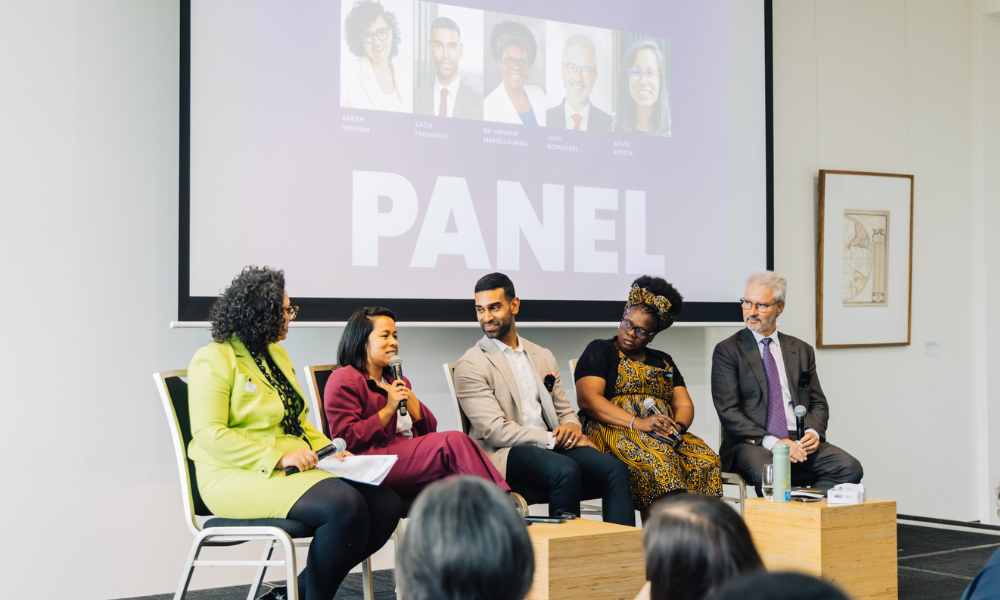A former senior partner who has just spoken at a major conference for corporate lawyers about building influence tells Australasian Lawyer why lawyers need to listen up
Lawyers need to focus on developing their listening skills in order to effectively build influence in their relationships, says executive consultant Emily Morrow.
Morrow, who practised law for 25 years as a senior partner in the US before establishing a successful career as a consultant in Australasia, told an audience of corporate lawyers at a major conference earlier this month about the importance of building influence.
To get results, influence is often the most useful tool available, she says.
“Even when one can exercise authority over others, results obtained through influence will likely be more appropriate.”
Influence can be attained through suggestion, enticement, well-reasoned arguments and subliminal messages, but Morrow says one of the most effective tools to influence thinking and behaviour of others is by asking open-ended and probing questions in a trusting environment.
“This also involves actively listening to the other person and it is helpful to have some sense of how best to frame your message so that it will be heard by the other person,” she says.
But although lawyers are trained to be skilled questioners, the listening department can be their downfall.
“As advocates, lawyers sometimes are poor listeners and can be more interested in arguing a position that hearing what another person is saying,” says Morrow. “So, although lawyers have all of the skill needed to be effective influencers, they sometimes fail to use them.”
She insists that influence is very different from manipulation.
While the former consists of offering others opportunities to engage in their best thinking and behaviour to achieve good outcomes, the latter is often an attempt to exercise authority over others without appearing to be doing so.
“In my mind there is a somewhat duplicitous and malignant aspect to manipulation. The focus is on what you want, rather than what may be best under the circumstances.”
Morrow’s top tips for integrating influence into relationships are:
Morrow, who practised law for 25 years as a senior partner in the US before establishing a successful career as a consultant in Australasia, told an audience of corporate lawyers at a major conference earlier this month about the importance of building influence.
To get results, influence is often the most useful tool available, she says.
“Even when one can exercise authority over others, results obtained through influence will likely be more appropriate.”
Influence can be attained through suggestion, enticement, well-reasoned arguments and subliminal messages, but Morrow says one of the most effective tools to influence thinking and behaviour of others is by asking open-ended and probing questions in a trusting environment.
“This also involves actively listening to the other person and it is helpful to have some sense of how best to frame your message so that it will be heard by the other person,” she says.
But although lawyers are trained to be skilled questioners, the listening department can be their downfall.
“As advocates, lawyers sometimes are poor listeners and can be more interested in arguing a position that hearing what another person is saying,” says Morrow. “So, although lawyers have all of the skill needed to be effective influencers, they sometimes fail to use them.”
She insists that influence is very different from manipulation.
While the former consists of offering others opportunities to engage in their best thinking and behaviour to achieve good outcomes, the latter is often an attempt to exercise authority over others without appearing to be doing so.
“In my mind there is a somewhat duplicitous and malignant aspect to manipulation. The focus is on what you want, rather than what may be best under the circumstances.”
Morrow’s top tips for integrating influence into relationships are:
- Establish high trust professional relationships based on regular interaction, appropriate disclosure of critical information, flexibility in terms of process and outcomes, consistency over time and good intentions.
- Use open ended, probing and fact-finding questions to encourage others to consider your perspective. Avoid questions that can be answered with yes or no and also questions that start with "why". Such questions tend to shorten a conversation and can be implicitly negative.
- Actively listen to the person with whom you're speaking. Clear your mind of your own thoughts while you are listening, allow a respectful pause after the other has finished speaking and then respond with either your comments and/or another question as appropriate.
- Develop a basic understanding of temperament so you can tailor your interactions with others to have maximum impact.







